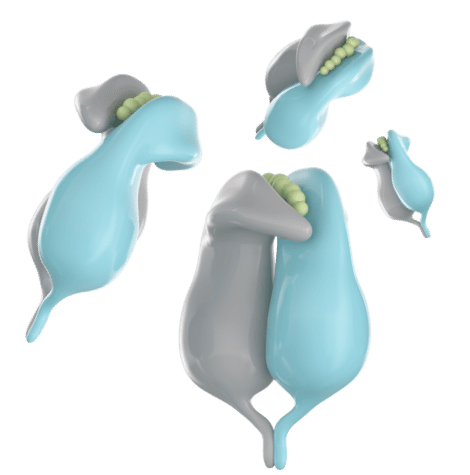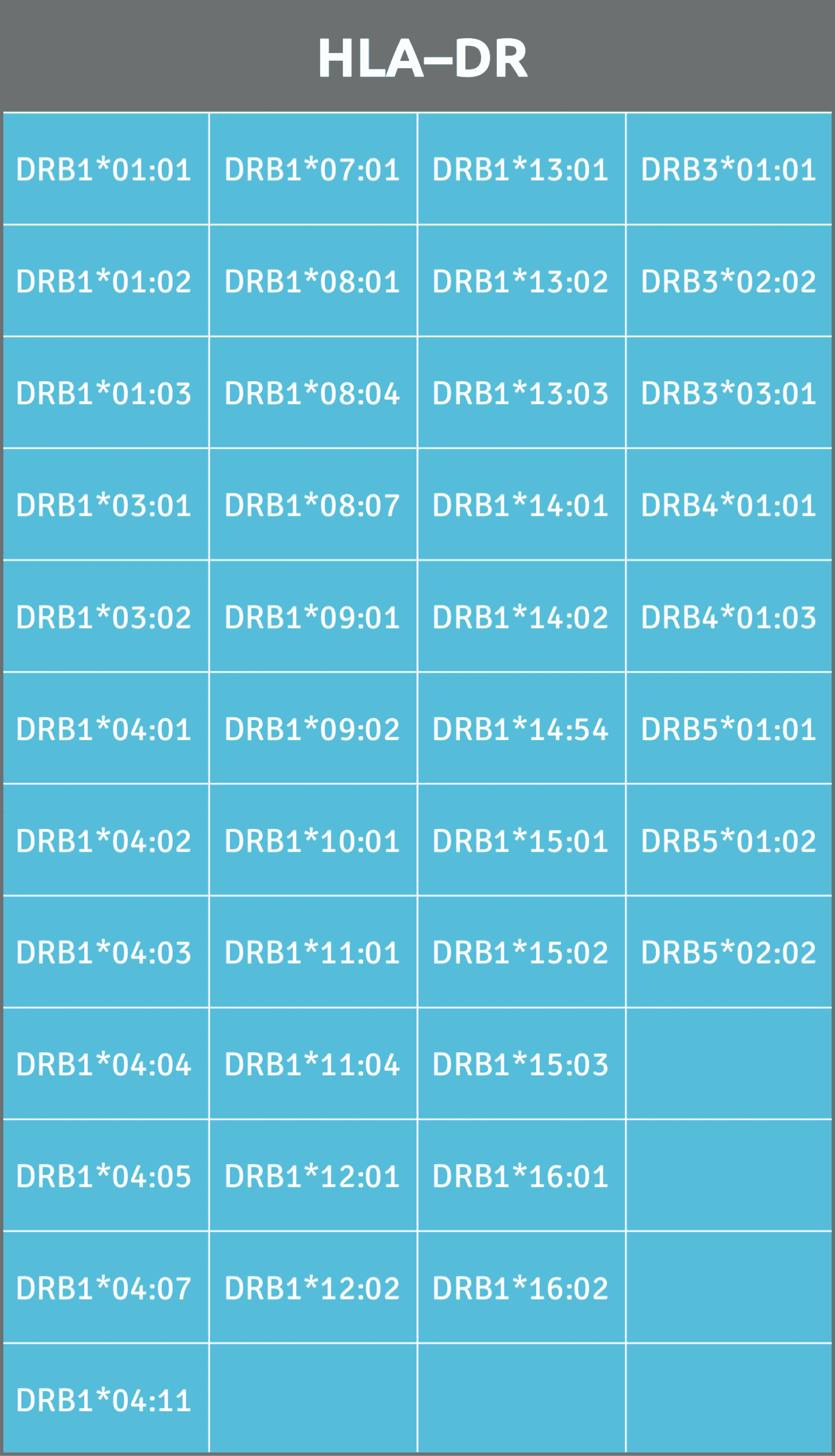Engage in research around the most intensively studied Class II type in transplantation and disease states
HLA-DR Proteins
We supply a comprehensive set of HLA-DR alleles to advance the fight against antigens most responsible for graft loss and to strengthen the defense against infections. Learn more about HLA.


HLA-DR Allele Map
Download our list of HLA-DR alleles to view all available sHLA proteins as well as products in development.
Featured Assays
Resources
SOLUBLE HLA TECHNOLOGY
Learn more about our sHLA Technology and how it can improve the quality and speed of your science
HLA APPLICATIONS
Explore the landscape of HLA applications in the fields of transplantation, autoimmunity, cancer and infectious diseases and find new ways to improve your research
SOLUBLE HLA PUBLICATIONS
Read more about our publications and discover new resources and ideas to support your endeavors
Frequently Asked Questions
What is a leucine zipper?
The leucine zipper is a common three-dimensional structural motif inserted into sHLA class II proteins that have enhanced binding capabilities displaying an alpha helix with periodic repetition of leucine residues that facilitate dimerization of the alpha and beta chain within sHLA molecules.
What is a preferable antibody to be used with sHLA DR?
We recommend the usage of the DR antibody L243 as it recognizes all sHLA-DR molecules in our catalog.
What is the difference between HLA class I and II?
HLA Class I glycoproteins are present on the surface of all nucleated cells. Class II glycoproteins are only present on specialized antigen-presenting cells (APCs), including macrophages that engulf foreign particles such as bacteria, dendritic cells that present antigens to T cells, and B cells that produce antibodies.
Related Products & Services
HLA-B Proteins
Select from a pool of over 65 HLA-B alleles to drive your immunological research to identify antibody immune responses or visualize antigen-specific immune cells
HLA-C Proteins
Discover a selection of over 20 HLA-C alleles, the dominant ligand for KIR on NK cells for your immunological research
Peptide Validation and Screening Services
Competition-based HLA peptide binding assays for the validation and screening of putative T cell epitopes


